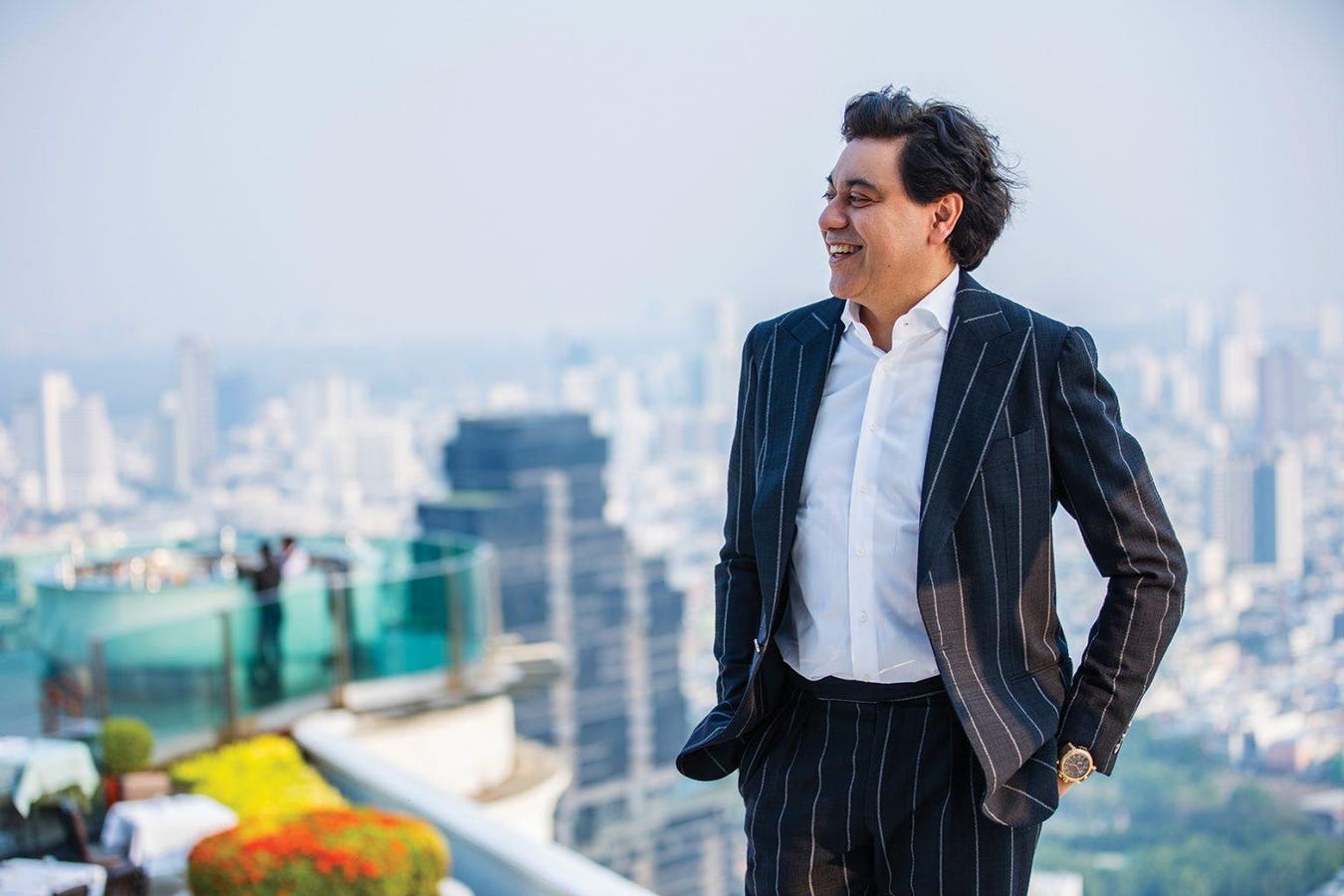If you have dined al fresco on top of a skyscraper, it’s largely because of one man’s vision and tenacity.
Tasked with turning a Bangkok building with serviced apartments into a luxury hotel, Deepak Ohri quickly realized that in the early 2000s, city hotel rates were less than one would pay for a fancy dinner. Yet the restaurant scene was mainly limited to Thai food and little else tourists or wealthy locals found of interest.
His plan to turn the rooftop floors into outdoor dining was widely derided. What happens when it rains?
Needless to say, he proved the naysayers wrong. Rooftops around the world have gone from wasted space for air conditioning units to prime real estate for outdoor high-end bars and restaurants.
Still faced with the challenge of low room rates in the capital and competition from well-known global luxury brands, Ohri turned his sights on making the city a destination for international haute cuisine.
His efforts – both show (a one-night only One Million Baht Dinner was covered by CNN, Time and The New York Times), substance (multiple award-winning restaurants and bars and the #1 hotel ranking in Bangkok from Travel +Leisure) and determination helped bring Michelin to the Kingdom.
He subsequently was rewarded with a pair of two-star ratings from the eponymous red guide for his two top restaurants in its latest edition.
Most importantly, his initiatives drove profits. In both instances, his restaurants and bars generated tabs that far exceeded room rates. Within months of opening Chef’s Table in 2019, checks ranging from $1,500 to $2,000 were bringing in 10 times the average daily room rate for the city’s luxury hotels.
Every evening, guests staying at competitors queue up in the lobby of lebua at State Tower. They wait to head up to its more than a dozen restaurants and bars some 60 floors above them. They come back down having parted a nice chunk of money.
Ohri says, instead of focusing on thread counts or who made the chandelier, his success is built on creating unique experiences guests wanted to share.
But if that was different a decade ago, the words experience and storytelling have become standards for press releases.
“I started the storytelling part. Everybody has come to the storytelling part. I’ve changed the gear to story-living part, and there are very few brands which are living their stories,” he says.
Ohri believes the key is creating an emotional bond between the customer and the provider.
But what, where and how?
The what will be a series of hotels with no more than 20 rooms, likely all suites and villas.
The where will be in highly desirable locations, from the vineyards of Napa, Bordeaux and Barolo to coffee plantations and other places where there is a well-known connection.
Design and architecture will play a prominent role. Food and beverage, Ohri’s strong suit, will be the star, where his ability to recruit top chefs will come in handy.
He promises innovations everywhere.
“We are going to do something that’s never been done with the minibar,” he says.
At the properties located near vineyards, there will be a wine club. But you won’t be able to just pull out your black card to gain access.
“To join, you will need to deposit three rare bottles from your collection,” Ohri says.
The new, yet-to-be-named company and its hotels, which will each have a unique identity, will disrupt the ultra-luxury space, he predicts.
The thread tying them together will be the name of the restaurants – Attitude, although each will have a different culinary focus.
“In luxury, when people buy something or spend money, they are possessing something that they want to talk about,” Ohri says.
Initial financing is coming from several family offices in Asia and Europe and possible locations in Napa are already being studied.
Read the full article here





